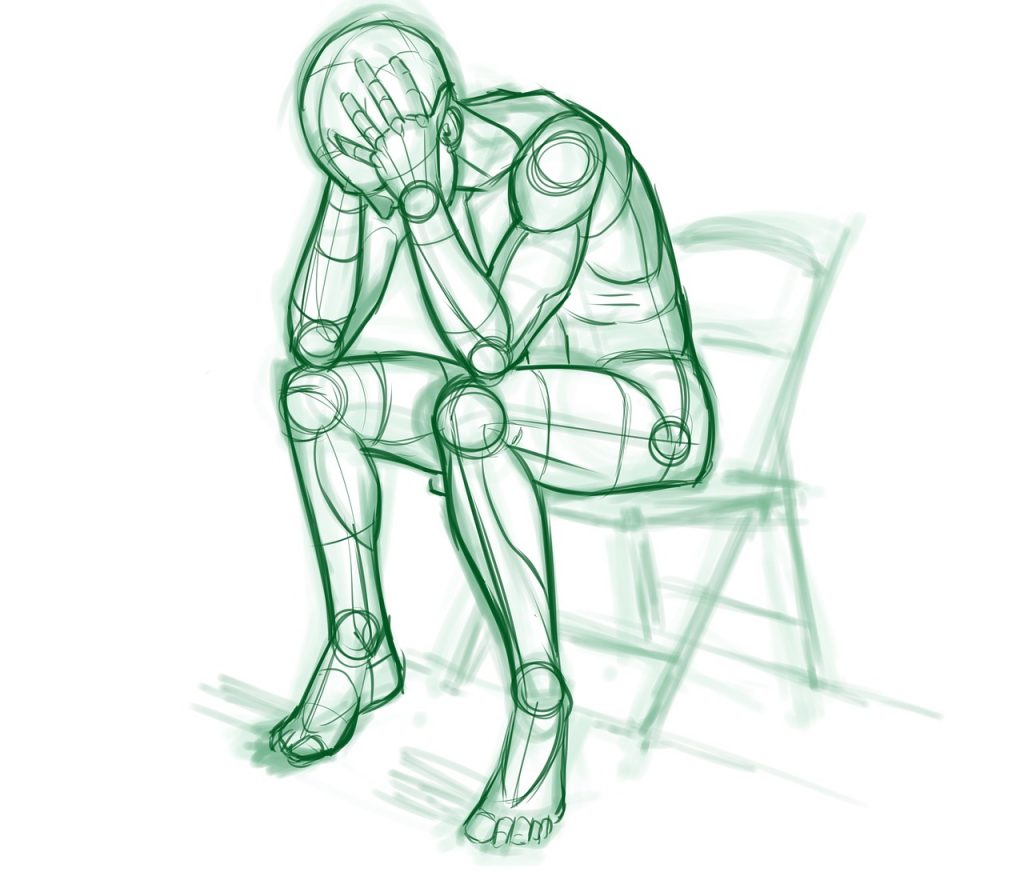This post is also available in Dutch.
The emerging field of neuroimmunology offers a new approach to treating depression. How exactly do the fields of psychiatry and immunology relate to each other?
Depression is one of the most common health problems. Worldwide, over 300 million people live with depression. Despite this, current treatments using psychotherapy, drugs, or a combination of both have a minimal effect on the improvement of many patients.
Depression first became a target for drug treatments around the 80s. The first drugs were based on the idea that the cause of depression was low levels of certain chemical messengers in the brain that we generally call neurotransmitters. So scientists thought that depression could be treated by boosting the levels of neurotransmitters like serotonin and norepinephrine.
The problem has always been that the theory of reduced levels of serotonin and norepinephrine as the cause of depression offered no consistent evidence. This might explain why drug treatments have had only limited effects on boosting the mood of depressed people. Scientists now think that the cause for depression can be found in the immune system, according to a new theory called “the cytokine hypothesis”.
What does “the cytokine hypothesis” tell us?
To guarantee that we are protected from the external threats such as viruses, bacteria, and so on, our bodies trigger a type of immune response called inflammation. In the case of inflammation, the immune system calls for the help of macrophages, the guardian cells that guarantee our immune safety. Macrophages are stationed in certain areas in the body and, once called, they fight biological invaders by destroying (eating) them. They also “manufacture” cytokines, which are further released through the human body to alarm other cells (and other macrophages) about the intruders that need to be destroyed. Cytokines are even able to get through the blood-brain barrier and inform the microglial cells, which are macrophages located uniquely in the brain.
The activity of cytokines is not exclusive to the threat imposed by “biological aliens.” Cytokines can also be released when a person feels stressed, which can trigger an inflammatory reaction that is unnecessary, considering there isn’t a real threat to fight against. Due to the close links between the body’s immune system and the brain, scientists think that the stimulant effect of stress on the immune system can also affect brain function. There is already research stating that inflammation can cause changes in how the brain works, which may lead to the development of psychiatric symptoms.
Opportunities for the future
While the precise mechanisms of how inflammation can cause depression need to be clarified, this line of research offers possibilities for the development of new drugs. New forms of treating depression can be designed in order to target the biological mechanisms involved in the dysregulation of inflammatory responses, which can be especially beneficial for people whose depression has been triggered by life stresses.
There is still a long way ahead of finding the cure for depression. But if you are interested and would like to know more about the causal links between depression and inflammation, read this or a great book by Edward Bullmore The Inflammed Mind: A Radical New Approach to Depression.
Original language: English
Author: Julija Vaitonyte
Buddy: João Guimarães
Editor: Marisha Manahova
Translator: Jill Naaijen
Editor Translation: Wessel Hieselaar
